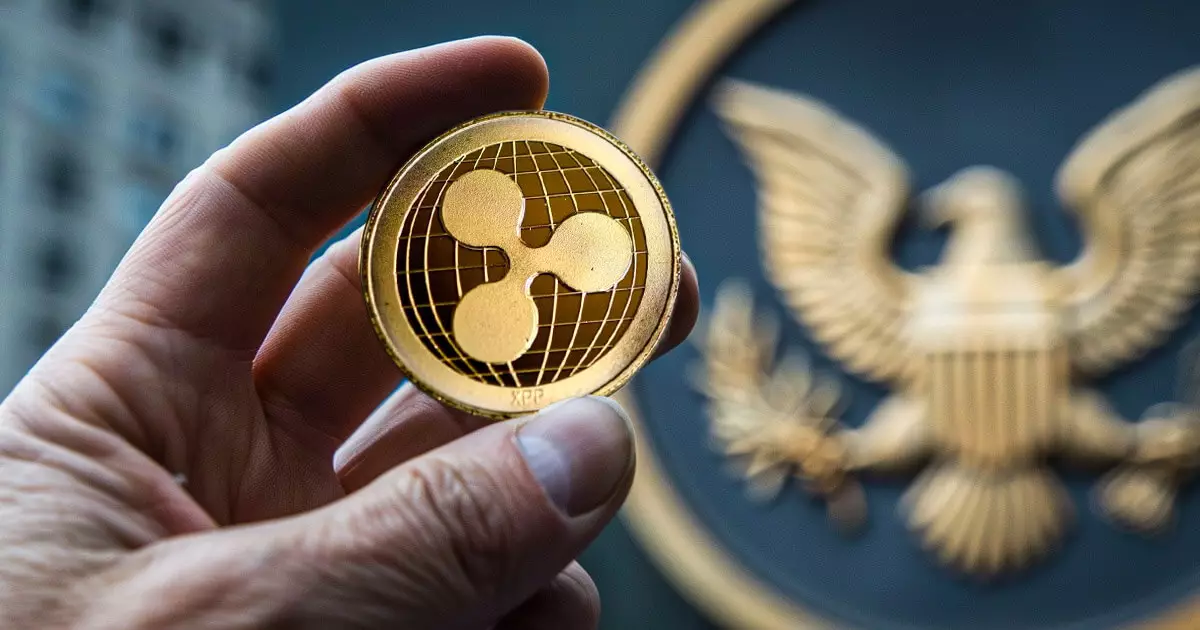The legal struggle between Ripple Labs and the U.S. Securities and Exchange Commission (SEC) is entering a new chapter that has significant implications for the cryptocurrency landscape. On October 10, 2023, Ripple Labs took a proactive step by filing a cross-appeal with the U.S. Court of Appeals for the Second Circuit, a strategic move in response to the SEC’s prior appeal. This ongoing battle, which began when the SEC filed a lawsuit against Ripple in December 2020, has garnered extensive attention within the crypto community and beyond, as its outcomes could shape the regulatory framework for digital currencies in the United States.
Background of the Legal Dispute
The SEC initially accused Ripple of unlawfully offering unregistered securities through the sale of its XRP token, claiming a staggering $1.3 billion in violations. These allegations argued that Ripple’s actions fell squarely within the purview of securities law. However, the narrative took a turn when Judge Analisa Torres of the U.S. District Court for the Southern District of New York delivered a mixed ruling in July 2023. While she affirmed that Ripple’s institutional sales of XRP did violate securities laws, she also concluded that programmatic sales to retail investors were permissible and did not constitute securities offerings.
The court’s decision marked a significant win for Ripple, but the victory came with caveats. The SEC sought remedies for these violations, initially demanding an exorbitant $2 billion penalty. However, the court moderated this number to a $125 million fine. This penalty, although substantially less than the initial request, was still higher than Ripple’s own modest proposal of $10 million. Ripple’s cross-appeal aims to contest this judgment further and ensure a complete and favorable resolution to their legal quandary.
The SEC has shown a relentless resolve to overturn the parts of the ruling that favored Ripple. Following the court’s decision, the agency promptly filed an appeal, signaling that it is far from willing to let go of its stance that XRP sales, particularly those conducted on exchanges and distributions to employees, should be classified as securities. This appeal from the SEC serves as a continuation of its broader, often controversial regulatory approach towards cryptocurrency—a tactic Ripple’s leading executives have sharply criticized.
Stuart Alderoty, Ripple’s Chief Legal Officer, articulated his views through social media, asserting that the cross-appeal aims to “ensure nothing is left on the table”. He expressed optimism about the potential for a favorable outcome in the appeal, emphasizing the ongoing struggle against what he perceives as misguided regulatory overreach by the SEC.
From the perspective of Ripple’s CEO, Brad Garlinghouse, the SEC’s actions represent not just regulatory enforcement but an attempt to sow discord within the cryptocurrency space. Garlinghouse’s comments reflect a growing sentiment among crypto enthusiasts that existing regulatory frameworks are often not equipped to handle the complexities of digital asset transactions. His characterization of the SEC’s agenda as a “regulation-by-enforcement” method underscores the frustration many stakeholders feel towards a lack of clear regulatory guidance.
As the legal proceedings continue, the wider cryptocurrency industry watches closely, recognizing that the outcomes of this case may establish crucial precedents for how digital assets are treated under U.S. law. The Ripple case serves as a pivotal moment, highlighting the tension between innovation in the crypto sector and the traditional financial regulatory frameworks that govern it.
The appeal procedures, now set to merge, promise to elongate the legal battle between Ripple and the SEC, creating uncertainty for investors, developers, and other stakeholders involved in cryptocurrency. The potential outcomes of these appeals may also influence future cases and regulatory considerations involving other cryptocurrencies and their respective issuing companies.
The ongoing legal skirmish between Ripple Labs and the SEC underscores a critical juncture for cryptocurrency regulation in the United States. As both sides prepare to present their arguments to the appellate court, the implications of this case extend far beyond Ripple, impacting how the entire industry navigates regulatory challenges in the future. The coming months will undoubtedly bring more details and developments that could redefine the relationship between crypto innovators and regulatory bodies.



















Leave a Reply